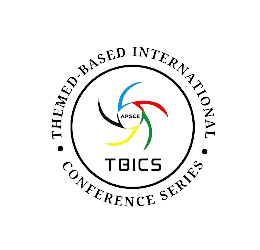Themes
The 3rd International Conference on Metaverse and Artificial Companions in Education and Society (MetaACES 2025) focuses on the themes related to education and society. The main themes of MetaACES 2025 include but not limit to the followings (in alphabetical order):
Track 1: AI and Artificial Companions in Education
Artificial Companion in Education
Artificial Intelligence (AI)
Automated Feedback
Behaviour and/or Interaction Modeling, Detection and Visualization
Big Data Analyzed and Processed by Computers
Chatbot
Computational Models of Knowledge and Expertise
Computer Supported Discussion Analysis and Assessment
Educational Robots and Toys
Enhancing Grading, Scoring and Feedback
Game Analytics
Intelligent Agents
Intelligent Tutors and Mentors
Learning Companion Robots (Robotic Learning Companions)
Learning Analytics in Educational Games
Learning Companions
Natural Language Processing supported Tools, Systems, Applications, Mobile Apps, and Chatbots
Roles of Artificial Companions in Metaverse
Role Playing Games for Learning
Security and Privacy Issues
Sentiment Analysis
Simulation and Training (Skill, Competence, Vocational Learning)
Speech Recognition and Synthesis
Stealth Assessment
Unstructured and Semi-structured Data for Computer to Read and Learn
Track 2: Metaverse in Education
Assessment in Games and Virtual Worlds
Authentic Environments and Worlds
Avatars or Player Characters for Learning
Educational Applications of Metaverses
Internet of Things (IoT), Internet of Everything (IoE), and/or Sensors
Metaverse in Education
Non-Player Characters for Learning
Virtual and Augmented Learning Environments
Virtual Characters in Learning and Life
Virtual Companions in Learning and Life
VR, AR and Simulation Technology
Track 3: Social Issues
Artificial Companion in Society
Bridging Informal and Formal Learning Outcome
Emotion (Affective State) Modeling, Recognition and Detection
Emotive Agents
Human Computer Interaction (HCI)
Human Robot Interaction (HRI)
Languages, Thinking Skills, Meta-cognitive Skills, Cognitive Skills, and STE(A)M
Metaverse in Society
Motivational and Affective Factors on Learning with Technology
Personal Learning Environments (PLE)
Social Network Analysis (SNA)
User Experience (UX) Evaluation
Virtual Animal Learning Companions






